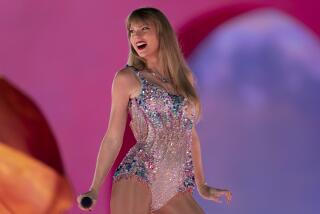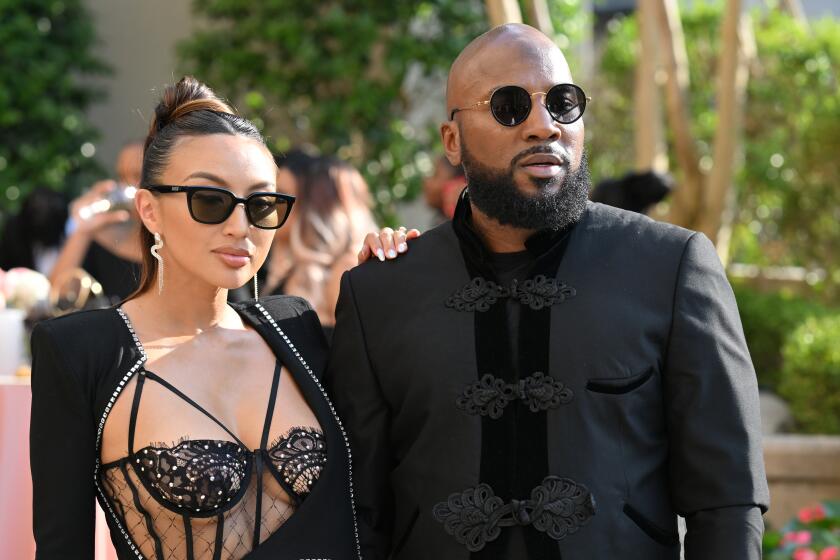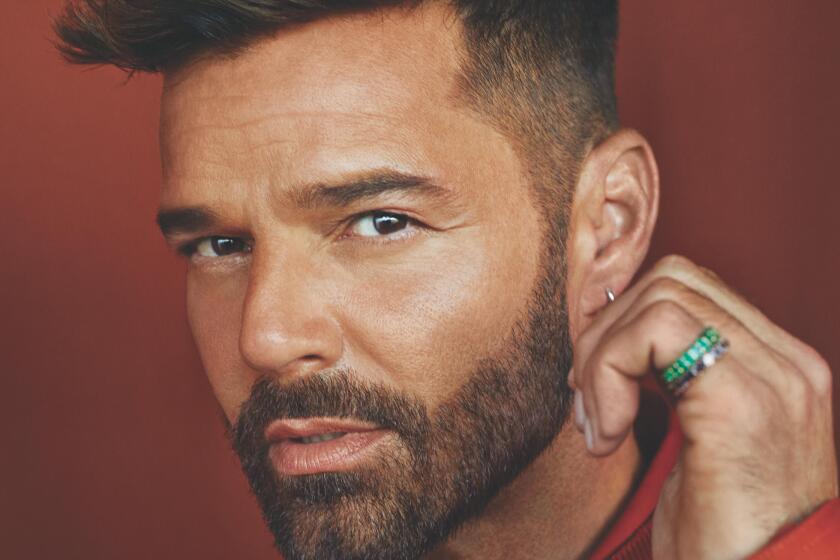They’ve still got friends
You had to work a little to find people at the Troubadour’s Carole King/James Taylor concert Wednesday who did not get the sense of occasion or weight of history in the evening.
Pretty much everyone there not only knew pretty much every song but sang along on pretty much every word -- from Taylor’s understated “Carolina in My Mind” and “Fire and Rain” to King’s expressive “It’s Too Late” and “I Feel the Earth Move” to the song they famously shared, her composition “You’ve Got a Friend,” which was a hit for each and the climactic duet here. These were songs that were unavoidable for much of the early ‘70s, coming largely from his landmark “Sweet Baby James” album and her “Tapestry,” the top-seller of its era.
And there was at least a general awareness of the club’s vaunted place in pop history as it celebrated its 50th anniversary -- the spot where the Byrds and Eagles formed, where Elton John and Linda Ronstadt launched to stardom, as did metal bands including Motley Crue and Guns N’ Roses in the ‘80s.
It was one particular slice of the history that was more or less re-created this night, with King and Taylor building a set around songs they did in a star-making stint for which they shared the stage in 1970, when he was the rising-star headliner and she a hugely successful songwriter but not a performer up to that point, serving dual roles as band member and opening act.
But there were some who weren’t aware of all that -- though they were largely among the handful too young to have experienced it as it happened.
There was, for example, the 28-year-old Troubadour bartender who said she knew little about the club when she found the job posting on Craigslist not long ago.
And there was the 18-year-old kid brought by his father -- none other than Eagles bassist Timothy B. Schmit.
“I know William Shatner is here,” Timothy B. Schmit Jr., said of the night’s significance, pointing to one celebrity in attendance.
Surely he knows that his father’s band coalesced in this very room.
“No,” he admitted. “I didn’t know that.”
The rest in the house, though, were primed to reconnect with the past.
“Do you all feel 28?” King asked as she and Taylor stepped on stage to kick off the first of the six-performance, three-night run, a benefit for several hunger, environmental and health-care charities.
“You look 28,” she lied -- though she hardly looks her 65.
“This is like one of those dreams where you go back to school,” said Taylor, adding a deadpan, “Usually I’m naked though.”
Taylor, 59, wryly and repeatedly insisted that he remembered little of the past (“Evidently we played here a lot before,” he quipped at one point), but stories flowed easily. King said that it was in the 1970 shows that Taylor “nudged” her, one of the most successful Brill Building songwriters of the 1960s, to step out on her own as a performer. Taylor pointed up to the spot in the balcony where he stood when he first heard King perform “You’ve Got a Friend,” noting, “I had no idea I’d be singing it every night from then on.”
Of course, today each is on the other end of careers -- King is releasing recordings through her own label, and Taylor recently joined fellow veterans Paul McCartney and Joni Mitchell on Starbucks’ Hear Music roster. But both the songs and the performers have aged remarkably well. King’s voice has a little rasp but is still as character-full as ever, and Taylor sounds as good as he did in the heyday. Both were loose and spontaneous, Taylor especially keeping the mood light with self-deprecating asides.
Backed by the same trio as in 1970 -- guitarist Danny Kortchmar, bassist Lee Sklar and drummer Russ Kunkel -- the two traded off on their respective songs, compositions that, one after another, unfolded the fabric of many lives in that room.
King showcased songs through which she -- along with Joni Mitchell and Laura Nyro -- redefined the concept of a female singer-songwriter. These were marked by high artistic quality and personal touches at a time when more often than not women sang words written by someone else -- in many cases by King herself -- and it was the fusing of her Brill Building grounding with auteur sensibilities that made her material so striking.
Taylor perhaps didn’t redefine the notion of a male singer-songwriter, but certainly refined it, being sensitive and vulnerable, provided much-needed reflection after the turbulent ‘60s and opening the door for such figures as Jackson Browne (who attended Wednesday’s late show).
In keeping with Taylor’s back-to-school dream, the mood was like a class reunion. Joe Smith, who as head of Warner Bros. Records signed Taylor after seeing him in this room in 1969, embraced Kunkel before the show and teased the drummer about his now-hairless head. Sklar reminisced about seeing Tim Buckley here in 1968, and wistfully noted that the Troubadour is the only survivor from a once-vital Southern California folk-rock club circuit -- the Ash Grove and the Golden Bear among them.
Peter Asher, Taylor’s longtime manager and producer and a creative director of these shows, remembered the Troubadour as home to a real community of artists.
“People think musicians all know each other and hang out together and it isn’t true,” Asher said. “But here, it was -- James and Linda Ronstadt and Jackson Browne and Carole and many others.”
On stage, King emphasized this, honoring the presence of some fellow songwriters, including her ex-husband, Gerry Goffin, with whom she wrote a slew of early-’60s hits, three of which she sang Wednesday: “(You Make Me Feel Like) A Natural Woman,” “Will You Love Me Tomorrow?” and, in a duet with Taylor, “Up On the Roof.”
And there were a few new memories created. After the show, Leslie Rivkin, 58, stood with her daughter Alexandra, 16. The former has been listening to this music since it was new, and her daughter has gained an appreciation by osmosis.
“It’s nice when you can share your music with your child,” Leslie beamed as the crowd filtered out of the club.
“I was trying to think if we came in 40 years, what musicians of my time would we see?” Alexandra said. “I couldn’t think of anyone.”
More to Read
The biggest entertainment stories
Get our big stories about Hollywood, film, television, music, arts, culture and more right in your inbox as soon as they publish.
You may occasionally receive promotional content from the Los Angeles Times.






